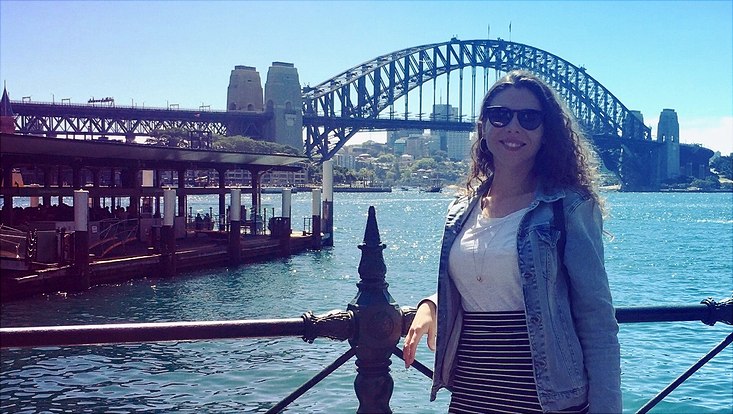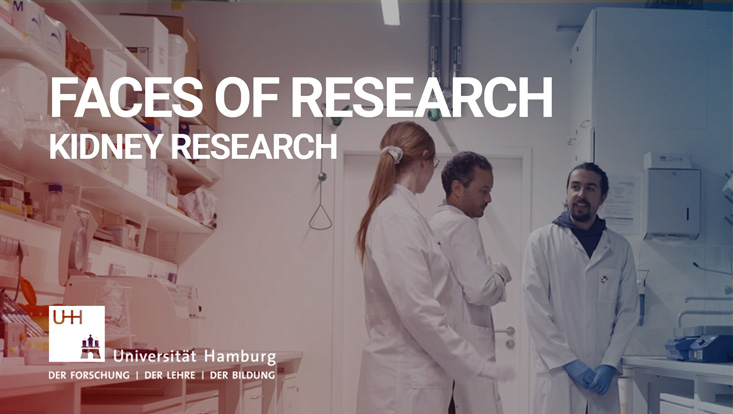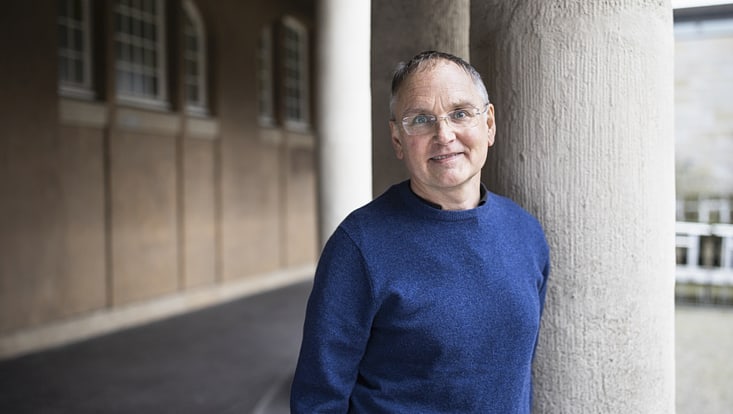Teacher education in Deutschland and Down UnderFirst joint-postdoctoral research position with Macquarie University in Sydney
16 July 2019, by Anna Priebe

Photo: Private
Researching in Australia: Educational Scientist Dr. phil. des. Anja Augsdörfer has begun the first joint-postdoctoral research position with Universität Hamburg and Macquarie University in Sydney: She is researching the methods teachers currently use to help students develop what is known as computational thinking. Here, a first report.
Three years postdoc, with half of it in Australia. How did this combination come about?
Universität Hamburg, Macquarie University and Fudan University in Shanghai have already been working in collaboration for many years. I did my doctoral dissertation at Universität Hamburg and spent four weeks doing research at Macquarie University. The Department of International Affairs helped me an incredible amount with that.
My supervisor, Prof. Siemon had already had contact with Prof. Bower in Sydney. During my stay there, it came out that our fields of research overlapped in some places, and we came up with the idea that I could come back to do a joint-postdoc.
What are you researching in Australia?
Prof. Bower, who I am working for here, is conducting intensive research into computational thinking. This is a hotly discussed topic, that presumes that school children are faced with complex challenges in this age of globalization and technical advancement. These challenges require the mastering of new skills. This skills should enable school students to break complex problems down into parts, pattern recognition, abstraction and the development of algorithms to solve those problems. In short: to develop solutions and formulate them in a way that a computer can execute.
What is your approach?
As part of the project, and with the support of companies and local government, we are offering workshops for teachers in the greater Sydney area. Australia has just introduced a new curriculum called “Digital Technologies and Computational Thinking.” For many teachers, this is completely new territory, and difficult to implement in the classroom.
Alongside research into which didactic theories and methods are the most effective, we are trying to offer innovative professional development opportunities to teachers. I did my doctorate as part of the “ProfaLe” project in the field of teacher education. Specifically, I focused on the use of video-based reflection and measuring competency. The results of our work so far are providing a very good basis for future development.
How will you develop this in Germany?
Ideally, at the end of my time in Australia, we will have held two rounds of workshops, and carried out the research that goes with that. In Hamburg, at the Institute of Vocational and Business Education we focus on media technology, that is, professional teacher education with a focus on educators in the media field. We will bring the results from the workshops and concepts on “Computational Thinking and Digital Technologies” into teacher education at both the bachelor and master level.
What is the difference between academic work in Australia and Germany?
There are a few differences. In particular, you notice that teacher education is quite nation specific, even though the world is becoming increasingly globalized. Particularly in the field of teacher education, you really have to first see how it works in that specific country. How do you get in touch with the schools? What permissions do you need before you can collect data? What cultural differences are there in regard to teacher learning and hierarchies in the schools and universities?
On top of all that, the higher education system is organized differently. Universities fund themselves from student fees, which makes working here more competitive. But all in all it is a very pleasant, open and collegial working environment. The proximity to Asia is something I also find very tempting.
What do you miss about Hamburg, and what does Sydney offer that’s attractive to you?
I have lived in Hamburg for 15 years and I love the city. At the moment, of course I miss my friends and colleagues, and sometimes German cuisine, I miss having well-organized public transport and the proximity to the cultural diversity of Europe. But there is a reason why I have been to Australia 6 times: Sydney is a global metropolis with beaches on the Pacific Ocean and the Australian outdoor lifestyle give me a wonderful quality of life here.
And yet: I actually planned to have an “endless summer”, but I seem to have landed in an endless winter. In a city without central heating, when it is 5 degrees outside, your apartment can sometimes get uncomfortably chilly. My timing was a little off on that—particularly given that the weather in Hamburg is great at the moment. But as long as the sun is shining here, and it usually does, everything is wonderful.
Strategic Partnerships
Macquarie University (MQ) in Sydney (Australia) has approximately 40,000 students. Universität Hamburg and MQ have been cooperating since the 1990s, and entered into a strategic partnership in 2012. Opportunities like the joint-postdoc format with MQ allow for scholarly exchange at the academic level. In total, there are 17 strategic partnerships at various stages of development between Universität Hamburg and international universities. This includes the trilateral strategic network between Universität Hamburg, MQ and Fudan University (FU).
More information on strategic partnerships at Universität Hamburg.More information on the trilateral strategic partnership MQ-FU-HAM.


